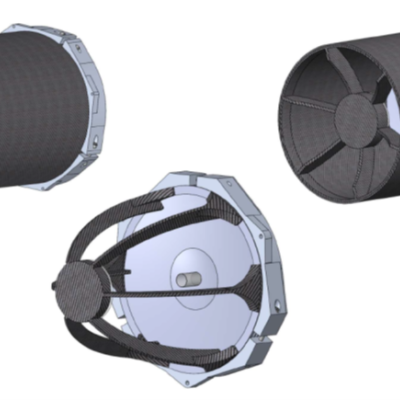The approach is to use foundational materials science, structural design, thermal analysis, optic fabrication, and space systems engineering, and to use optimize them through large-scale simulation to realize meter-scale telescopes at 10X cost reduction. LLNL’s folded Gregorian design integrates all alignment sensitive components into one static monolithic system. Like solid-…
Keywords
- Show all (240)
- Additive Manufacturing (55)
- Instrumentation (41)
- Synthesis and Processing (21)
- Sensors (14)
- Diagnostics (11)
- Imaging Systems (9)
- Photoconductive Semiconductor Switches (PCSS) (9)
- 3D Printing (8)
- Carbon Utilization (7)
- Electric Grid (7)
- Materials for Energy Products (7)
- Semiconductors (7)
- Substrate Engraved Meta-Surface (SEMS) (7)
- Brain Computer Interface (BCI) (5)
- Data Science (5)
- Diode Lasers (5)
- Optical Switches (5)
- Laser Materials Processing (4)
- (-) Therapeutics (7)
- (-) Compact Space Telescopes (6)

After screening at least 50 different cyclodextrins, LLNL researchers found that the drug Subetadex shows enhanced affinities for fentanyl and its analogues. Subetadex is a smaller version of sugammadex and with a smaller central cavity, allows it to bind extremely well to fentanyl by comparison. A pharmacokinetic study showed a rapid clearance of this promising candidate from…
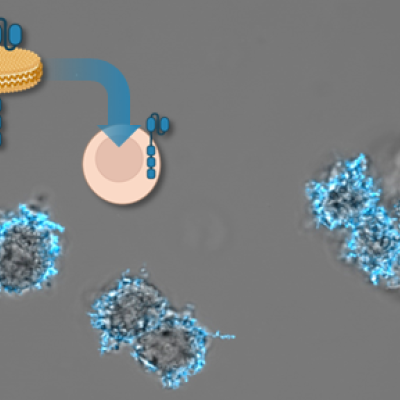
Rather than using genes carried by viruses, LLNL researchers have developed an alternative approach of delivering CAR to T-cells in form of proteins that are carried on the surface of nanolipoprotein (NLP) particles. NLPs are naturally occurring molecules that serve as structural mimics of cell membranes. They can self-assemble and provide a structure or platform for connecting other…

This invention works by imaging an ultrafast pulse diffracted from a large grating onto a spatial light modulator (SLM) thereby directly transcribing an arbitrary record on a pulse front tilted (PFT) ultrafast pulse. The grating generates PFT of the input pulse, and the SLM provides temporal control of the pulse through the space-to-time mapping of the tilted pulse. Coupling this patterned…

This invention exploits the non-linearities of optical Mach-Zehnder (MZ) electrooptic modulators to enhance small signal dynamic range at higher bandwidths. A linear photodiode (PD) converts the amplified optical signal output from the MZ back to an electrical signal completing an Electrical-Optical-Electrical (EOE) conversion cycle. The dynamic range can be further enhanced by daisy chaining…
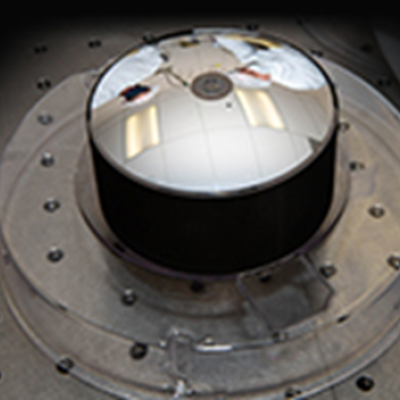
Rapid monolith development at scale is achieved through use of a functionally equivalent optic simulant made from a low-cost material to substitute the functional optic. Monolith optical performance is affected not only by thermal expansion but also by temperature inhomogeneity due to the temperature dependence of refractive index.

Aeroptics are a proposed new class of monolithic optical system in aerogel fabricated by molding around a master mandrel. This approach combines the intrinsic stability of proven monolithic telescopes, with the ultralow density of silica aerogels. In Aeroptics, the monolith is hollow with an aerogel substrate providing a supporting structure. Theoretically, Aeroptics could enable 1-m aperture…

This invention achieves both a wider field of view and faster f-number within a monolithic substrate by incorporating an aspheric convex refractive first surface and a planar aspheric field corrector surface on the final refractive surface. These two refractive surfaces work in conjunction with a concave aspheric primary and convex aspheric secondary mirror (e.g. Cassegrain type) to improve…
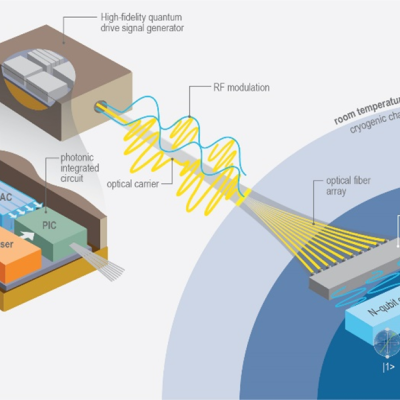
LLNL researchers in the NIF Directorate DoD Technologies RF Photonics Group explored phase modulation solutions to this signal processing challenge. Optical frequency combs offer phase noise characteristics that are orders of magnitude lower than available from commercial microwave references. The Photonics Group researchers recognized that by converting the intensity information into phase,…
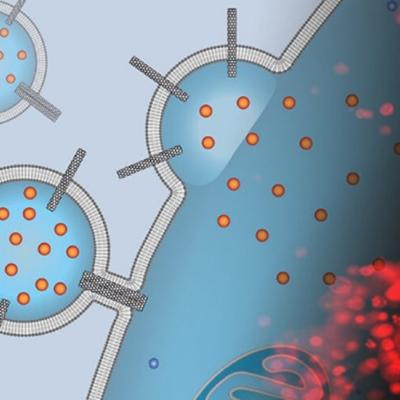
To address shortcomings of current liposome drug delivery systems, the patented innovation uses drug-loaded liposomes containing carbon nanotube porins (CNTPs) inserted into the liposomal membranes for the delivery of the encapsulated drugs. Short CNTPs (10 nm in length) with narrow diameter (0.8 nm) has been demonstrated to facilitate efficient fusion of lipid bilayers resulting in the…
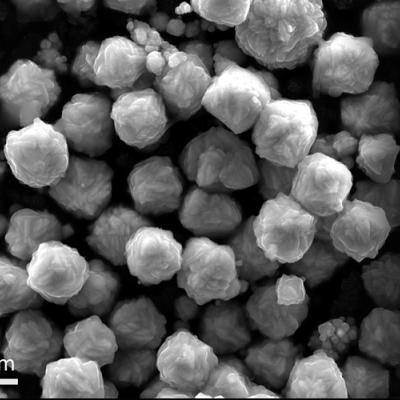
A new approach of developing synthetic antibacterial mineral assemblages can be used as an alternative treatment when traditional antibiotics fail in clinical and agricultural settings. Mineral mixtures can be synthesized with tunable metal release and reactive oxygen species generation that are capable of killing human pathogens and promoting wound healing. One of the key components in the…
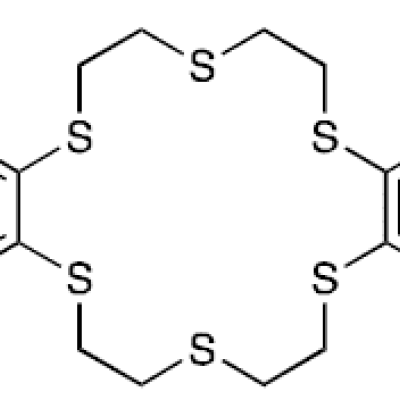
The method described in a pending patent application uses a novel thiacrown (dibenzohexathia-18-crown-6) for efficient extraction of 197m,gHg and 197gHg from irradiated Pt target foils. The separation of 197m,gHg and 197gHg from Pt foils using this novel thiacrown was found to be highly specific. No detectable amount of the Pt foil was seen in the…
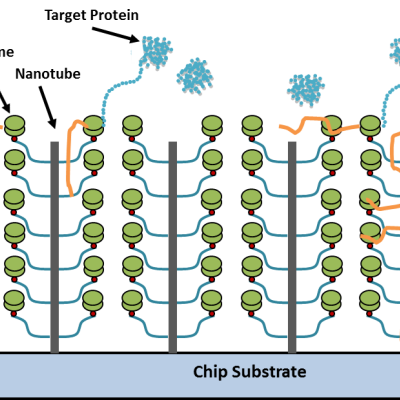
Combining the principles of nanotechnology, cell-free protein synthesis and microfluidics, LLNL researchers have developed a reusable, portable programmable system that can create purified, concentrated protein product in vitro in a microfluidic device containing nucleic acids.
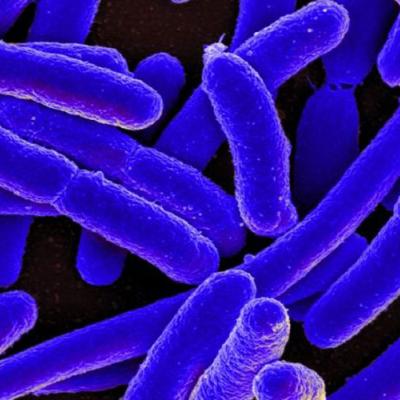
LLNL scientists developed novel hydrogels, which are biodegradable soft materials synthesized by a water-soluble polymer. Incorporating silver imparts antimicrobial activity to the material at low concentration compared to currently used silver nanoparticles. Our hydrogels are composed of silver ions instead of silver nanoparticles, which eliminates the toxicity concerns of modern silver…
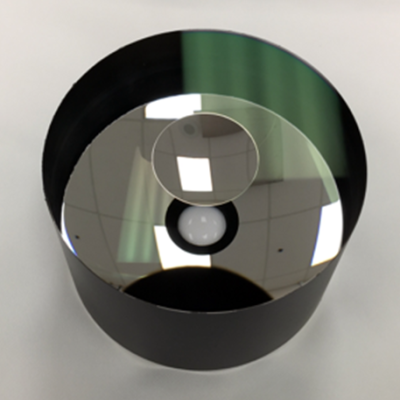
Monolithic Telescopes are a novel implementation of a solid catadioptric design form, instantiated in a monolithic block of fused silica.
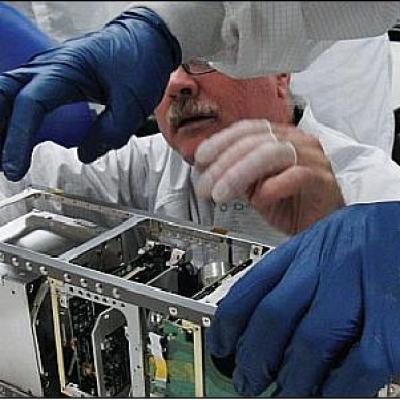
LLNL is developing the Space-based Telescopes for Actionable Refinement of Ephemeris (STARE). STARE is a constellation of low cost nano-satellites (less than 5Kg) in low-earth orbit dedicated to the observation of space debris in conjunction with a ground-based infrastructure for maintenance, coordination and data processing. Each nano-satellite in the constellation is capable of recording an…


